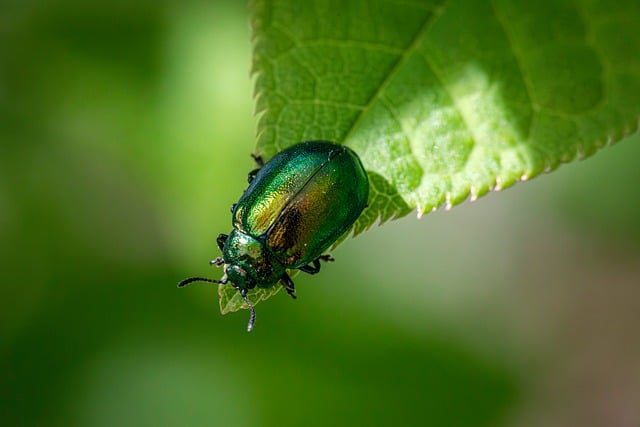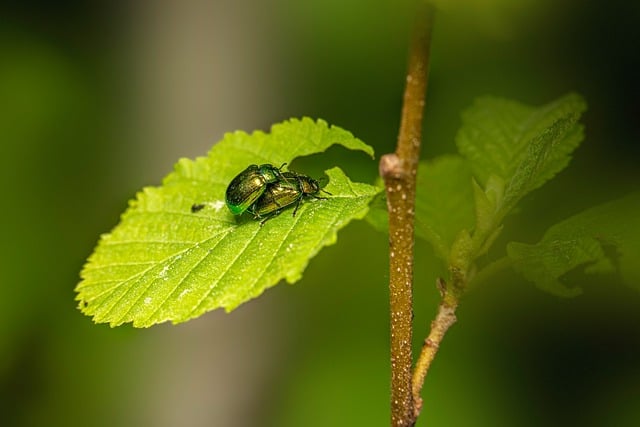Pantry pest infestations, including Indian meal moths and flour beetles, are common in Arvada. Effective insect and disease management for fruit trees involves a balanced approach combining preventive measures like inspections and cleanliness with IPM tactics. Regular monitoring, early detection, cultural control, biological control, and chemical control (when needed) safeguard tree health while minimizing environmental impact. Planting resistant varieties, proper care, and encouraging natural predators also promote long-term vitality for fruit trees in the Arvada region.
Pests can wreak havoc on fruit trees, especially in close proximity to areas like Arvada with diverse ecosystems. Understanding pantry pest infestations is key to maintaining healthy trees. This article explores effective insect and disease management strategies tailored to fruit trees near Arvada. We delve into preventative measures and long-term solutions, empowering you with the knowledge to safeguard your trees against common pests and diseases. Implement these practices for optimal tree health and bountiful harvests.
- Understanding Pantry Pest Infestations in Fruit Trees Near Arvada
- Effective Insect and Disease Management Strategies
- Preventative Measures and Long-Term Solutions for Healthy Fruit Trees
Understanding Pantry Pest Infestations in Fruit Trees Near Arvada

Pantry pest infestations are a common issue for fruit trees in the Arvada area, requiring proper understanding and treatment. These pests, often tiny insects or their larvae, find their way into stored fruits and grains, causing significant damage. Effective insect and disease management is crucial to protect not just your fruit trees but also ensure the safety of pantry items within your home.
Nearby Arvada, various species such as Indian meal moths, bean weevils, and flour beetles target stored foods. Identifying these pests early is vital, as they can quickly multiply. Regular inspections and maintaining a clean environment are key preventive measures. For existing infestations, professional pest control services specializing in organic or chemical treatments, depending on severity, can effectively eradicate these unwanted visitors while ensuring the well-being of your family and the environment.
Effective Insect and Disease Management Strategies

Effective pest control goes beyond mere elimination of visible insects. For fruit trees near Arvada, a balanced insect and disease management strategy is key to long-term health and productivity. This involves both preventive measures and swift action when pests are detected. One effective approach is integrated pest management (IPM), which integrates multiple tactics such as cultural control (e.g., proper planting and spacing), biological control (introducing beneficial insects that feed on the pests), and chemical control (using targeted, least-toxic pesticides only when necessary).
Regular monitoring is crucial to successful insect and disease management. Inspect your fruit trees frequently for signs of infestation or unusual growth. Look for changes in leaf color, texture, or size; presence of webbing, eggs, larvae, or adult insects; and any abnormal oozing or decay. Early detection allows for timely intervention, preventing small issues from escalating into large-scale problems that can impact the entire orchard.
Preventative Measures and Long-Term Solutions for Healthy Fruit Trees

Maintaining healthy fruit trees in the Arvada area involves a combination of preventative measures and long-term strategies for effective insect and disease management. Start by creating an environment that fosters resilience; this includes proper planting techniques, ensuring adequate spacing between trees to promote good air circulation, and choosing disease-resistant varieties whenever possible. Regular monitoring is key—inspecting leaves, bark, and fruit for any signs of infestation or decay. Early detection allows for swift action using integrated pest management (IPM) methods, which prioritize eco-friendly solutions over chemical pesticides.
Encourage natural predators like birds, bats, and beneficial insects to inhabit your landscape. Plant native species that support these helpful creatures and provide water sources. Maintain a well-watered garden, as stressed trees are more susceptible to pests. Prune trees regularly to improve their structure and remove any diseased or infested branches. Mulch around the base of trees to retain moisture, suppress weeds, and regulate soil temperature. These practices contribute to a robust defense mechanism against insects and diseases, ensuring your fruit trees thrive for years to come.
Pest control is essential for maintaining healthy fruit trees in and around Arvada. By understanding the specific insect and disease management strategies, along with preventative measures, homeowners can effectively manage pantry pest infestations. Implementing these long-term solutions will ensure vibrant, bustling fruit trees, providing a rich tapestry of delicious fruits for years to come. For effective insect and disease management tailored to fruit trees near Arvada, consider professional guidance to safeguard your orchard.
